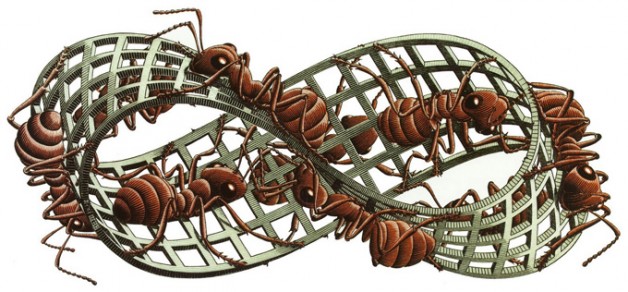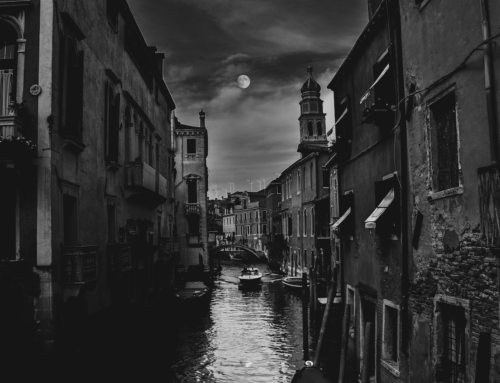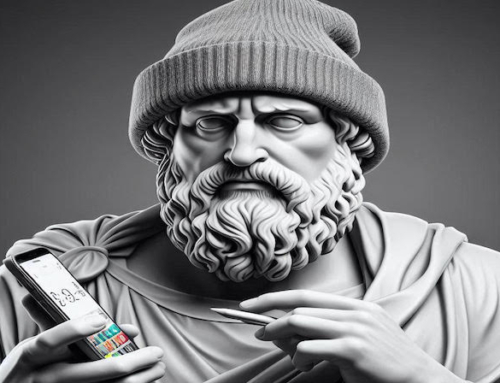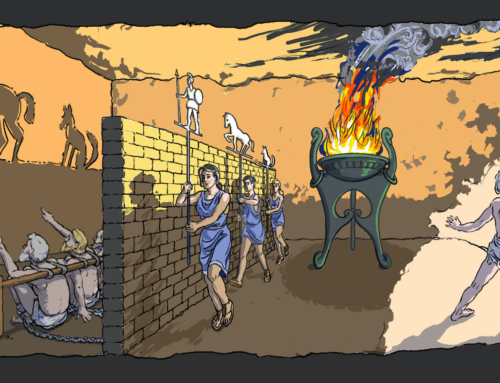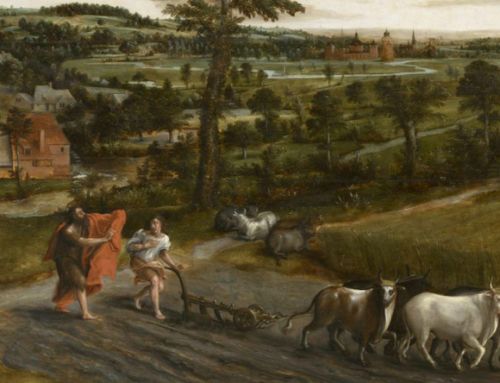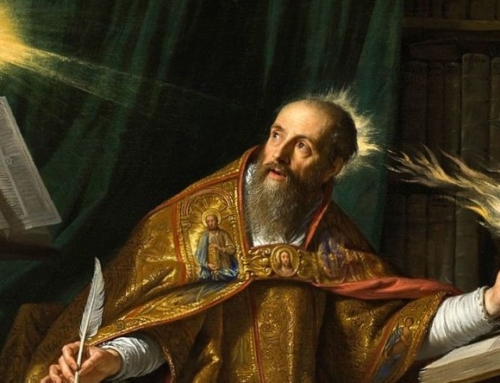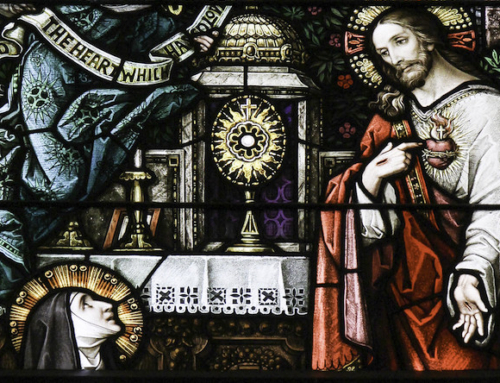In both mathematics and metaphysics, we encounter the mystery of infinity. How can we describe that which has no end, no limit? We try to wrap our minds around questions that deal with the infinite. How high can we count? How many points make a line? How long does the human soul last? Try as we might, we cannot completely grasp the answers, as our finite minds can only acquire a finite amount of knowledge. And when we try to explain the infinite, we only complicate things even further: the infinite number of points in a line is infinitely larger than the infinite set of counting numbers. Contemplation of the infinite leaves us in a state of inescapable wonder.
Yet we wish to know this mystery; while our abilities are finite, our desires are infinite. In our lives, we try to fulfill them with finite things: food, possessions, romance, adventure — yet despite the temporary excitement that they generate, they always leave us unsatisfied and craving more. No matter how much we have, we are always lacking something. Even our own desires, which come from within our own souls, are insatiable and incomprehensible. Only that which is itself infinite can satisfy our infinite wants.
And so we turn to God; yet in His infinity, our minds cannot grasp Him. He is omnipotent (infinite in power), omniscient (infinite in knowledge), omnibenevolent (infinite in goodness), omnipresent (infinite in space), and eternal (infinite in time). Thinking of even one of these attributes of God leaves us in awe and causes us to reflect on our own limitations, on how much we fall short of God. There is no way that we can rise to an understanding of God by our own efforts; rather, God must lower Himself to our level in order to raise us to His. And that is exactly what He accomplished through the Incarnation: The Word became flesh, and dwelt among us, and we saw His glory. The glory of God, which draws us into infinite wonder, becomes accessible to us, with our finite powers, when the infinite God takes on our finite human nature.
And even though we cannot comprehend the infinite on our own, we can at least represent it. The familiar symbol for infinity is a loop that turns back onto itself. Yet even this finite symbol leads us to the infinite God. For just like God, this symbol has no beginning, and no end, but it has a middle. And in the middle, we find the Cross. For when the infinite God assumes a finite nature, He takes on all that comes with it, including the finiteness of mortality. It is through this event — in which Jesus Christ, the Word made flesh, emptied Himself and took on all our human weaknesses, to the point of death — that we are drawn into contemplation of the Infinite.
But, so often, we try to ignore the Cross, or to remove it from our lives. Yet, if we take away the Cross from the symbol for infinity, we are left with a zero — nothing. Without the Cross, our desires and wants, our struggles and sufferings — even our lives — have no meaning. If we attempt to ignore the Cross, and keep trying to fulfill our desires with that which does not satisfy, or to reason our way towards infinity by our own powers or will, we end up traversing the path of the zero: going around endlessly in circles, with no change of scenery. Yet the Cross — the instrument and symbol of our Lord’s saving passion and death, gives us a true destination, turning the symbol for nothing into the symbol for the answer to all our wants and needs.
Let us then embrace the Cross, making it the center of our lives, just as it is the center of infinity. Let us set our sights beyond our finite abilities and the finite goods of this world, and become absorbed in the infinite love that Jesus Christ showed to us on the Cross. Only then can we be taken up to Him and rise into the infinity of eternal life.
Image: M.C. Escher, Moebius Strip II

